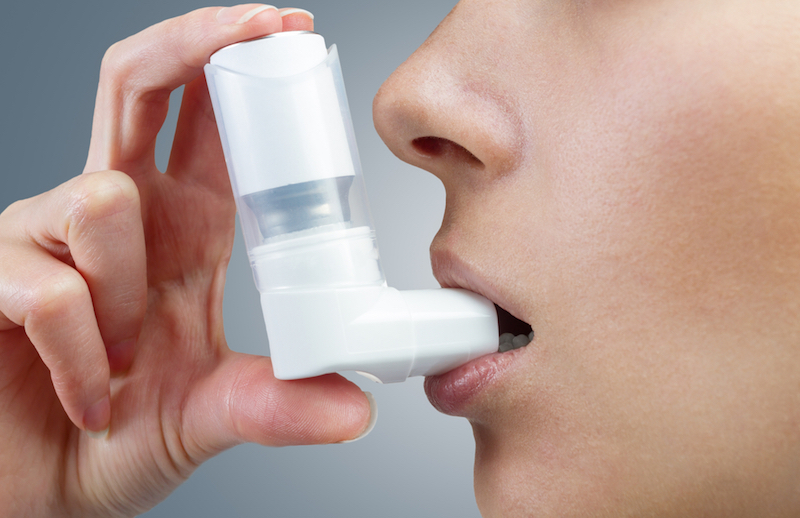Breath of Fresh Air: How Smartphones Can Help Asthma Sufferers

Get the world’s most fascinating discoveries delivered straight to your inbox.
You are now subscribed
Your newsletter sign-up was successful
Want to add more newsletters?

Delivered Daily
Daily Newsletter
Sign up for the latest discoveries, groundbreaking research and fascinating breakthroughs that impact you and the wider world direct to your inbox.

Once a week
Life's Little Mysteries
Feed your curiosity with an exclusive mystery every week, solved with science and delivered direct to your inbox before it's seen anywhere else.

Once a week
How It Works
Sign up to our free science & technology newsletter for your weekly fix of fascinating articles, quick quizzes, amazing images, and more

Delivered daily
Space.com Newsletter
Breaking space news, the latest updates on rocket launches, skywatching events and more!

Once a month
Watch This Space
Sign up to our monthly entertainment newsletter to keep up with all our coverage of the latest sci-fi and space movies, tv shows, games and books.

Once a week
Night Sky This Week
Discover this week's must-see night sky events, moon phases, and stunning astrophotos. Sign up for our skywatching newsletter and explore the universe with us!
Join the club
Get full access to premium articles, exclusive features and a growing list of member rewards.
As smartphones become ubiquitous, several companies are taking advantage of these portable computers to track when and where people with asthma need their medication.
The data collected by the smartphones are giving researchers a clearer overall picture of asthma attacks and inhaler use, which, in turn, could allow researchers to map out the areas linked to respiratory disease and even reveal some of the underlying triggers of asthma symptoms.
"We're collecting data about daily lives and medications," said Chris Hogg, chief operating officer of Propeller Health, a company in Madison, Wisconsin, that provides both hardware and software for managing asthma. Propeller Health makes inhalers that patients can link to their smartphones via Bluetooth, which are now available to anyone with a doctor's approval.
Whenever Propeller's "smart" inhaler is used, the phone's geolocation services log exactly where the patient is when he or she is using it. Thus, the time and location of the inhaler's use could allow doctors to tell whether a patient is following the correct instructions for inhaler use, and if certain places or times trigger the patient's asthma symptoms.
Asthma patients without a smart inhaler can use an app (so far, available only in iOS) offered by California company LifeMap Solutions that allows patients to log the times when they need their inhalers. If these patients are required to follow a specific schedule for their inhaler use, the app alerts them when to use it. The app also tracks people's physical activity by using the phone's built-in accelerometer to count the number of steps that users take daily.
The app aims to help doctors monitor their patients and adjust their treatment plans accordingly, said LifeMap Solutions CEO Cory Bridges. "We want to take that big data and analytic work, and turn it into solutions for patients and doctors," he said. [The 7 Biggest Mysteries of the Human Body]
Researchers also can use the data gathered by asthma apps to conduct large studies of asthma patients. Currently, Propeller Health is partnering with state and local health authorities in Louisville, Kentucky, to work on a project called AIR Louisville. For the project, researchers want to follow 2,000 people with asthma to look at when their symptoms occur and when they need to use their medication.
Get the world’s most fascinating discoveries delivered straight to your inbox.
The researchers will take all of this data and use it to understand the impact of environmental factors on people with asthma, Hogg said. They aim to map air-pollution patterns and other factors in order to figure out what drives asthma attacks.
Meanwhile, LifeMap is partnering with researchers at the Icahn School of Medicine at Mount Sinai in New York on a similar project that uses the data from its Asthma Health app. In this case, the researchers are using the data to find ways to personalize treatment for patients.
LifeMap is also working on a Bluetooth-connected inhaler, as well as an app that would track the use of rescue inhalers that asthma patients employ when in distress.
Representatives from both LifeMap and Propeller Health said that, due to privacy concerns, they encrypt the data and make it anonymous.
Other companies are working on different types of products to help asthma patients. For instance, Poland-based MySpiroo and Greece-based Respi have designed devices called spirometers that connect to people's smartphones to measure patients' breathing capacity.
MySpiroo's device connects to a phone through the headphone jack, and is a variation of the spirometers that people with asthma have used for decades. Respi's breath-measuring device can collect location and sensor data, as well as predict when certain areas might be dangerous to a person with asthma.
One day, all of this new technology could help patients receive "asthma forecasts," similar to the pollen forecasts allergy sufferers can monitor today. An early analysis of Propeller data "found correlations with weather, temperature and season," Hogg said; "we might find all sorts of interesting things."
Follow Live Science @livescience, Facebook & Google+. Originally published on Live Science.

 Live Science Plus
Live Science Plus










